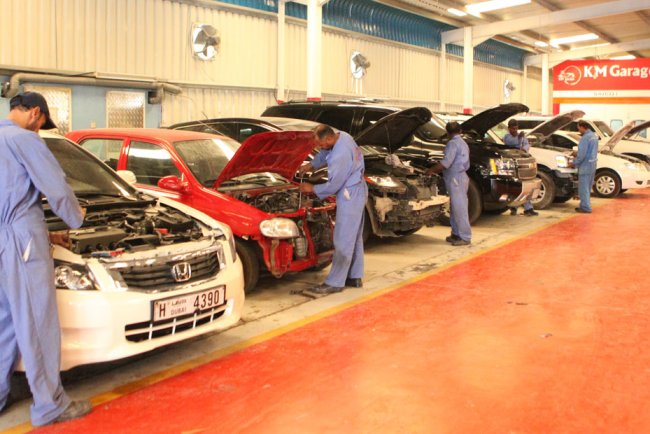How to Make a Small Restaurant Business Plan: A Step-by-Step Guide to Success
This guide will teach you how to develop and make successful small restaurant business plan. Find secrets of market research, financial planning, menu development, etc.!

Launching a small restaurant can be an exciting venture but requires careful planning and an effective strategy in order to be successful. A solid business plan can make all the difference between an established eatery and one struggling to survive; here we'll go over all essential steps on how to create one, from market research through financial projections. In this blog, we'll walk you through the essential steps on how to make a small restaurant business plan, covering everything from market research to financial projections.
The Importance of a Business Plan for Your Restaurant
Look, before you start jotting down that business plan for your restaurant, you need to actually get why you’re bothering in the first place. It’s like—would you just jump in your car and drive off with no idea where you’re headed? Nah. That plan’s your Google Maps, man. Without it? You’re basically just hoping to trip over success by accident. Plus, it helps you wrangle your ideas instead of letting everything spiral, and, let’s be honest, investors eat that stuff up. Want to set real goals instead of just hoping for the best? Yeah, you’ll need this. Try making smart calls or figuring out if you’re crushing it without one? Yeah, good luck with that.
Define Your Restaurant Concept
Writing Your Small Restaurant Business Plan mes When creating a business plan for a small restaurant, the first step should be defining your concept for opening.So, what’s the vibe—are you dreaming up a chill fast-casual spot, something a bit fancier like fine dining, or maybe a place where kids can run wild and parents don’t have to stress? Seriously, this choice is everything. It’ll mess with your location hunt, totally shape your menu (think: truffle oil or chicken nuggets?), and even decide whether you’re blowing cash on TikTok ads or just handing out flyers at the local soccer field. No pressure or anything.
Tip:Figure out what actually makes your restaurant pop—like, why should anyone pick your spot over the place down the street? Your USP (yeah, that’s “unique selling proposition,” but let’s not get too corporate) has to be more than a slogan slapped on your menu. Maybe it’s that mind-blowing signature dish no one else has, or maybe your staff’s so friendly they remember your dog’s name. Basically: what’s your thing that people can’t shut up about? That’s your golden ticket
Conduct Market Research
Listen, you can’t just roll the dice and hope your restaurant magically works out. You gotta know your crowd—like, who’s actually walking through your doors? Plus, check out the competition down the street. What’s everyone else serving up? And, seriously, if you’re clueless about what people are craving these days, you’re toast. Seriously, dig into what people nearby actually like to eat and how they spend their money when they go out. That way, you’re not throwing spaghetti at the wall with your menu or your prices—you’ll actually have a shot at making choices that make sense. Otherwise, good luck competing with the taco place down the block that figured this stuff out years ago.
Develop a Detailed Menu
Your menu is at the core of any successful restaurant. Develop one that appeals to both target customers and represents its concept while considering cost of goods sold (COGS) figures in the pricing structure so it remains both attractive and profitable.
Draft a Financial Plan
It is imperative for any small restaurant business plan to include an effective financial plan, so this section should include details regarding finances such as
- Startup Costs: Basically, this is the cash you gotta shell out upfront—think stuff like buying gear, fixing up the place, and all those annoying permits. Yeah, it adds up fast.
-
Man, those bills just don’t quit—paying your crew, keeping the kitchen stocked, covering the electric bill (which somehow keeps growing), tossing in a little cash for ads… it all piles up way faster than you’d think.
-
Alright, time to play psychic with your numbers. Take a wild guess (well, an educated one) at how much cash you think you’ll rake in—sales, profits, the whole nine yards—for the next few years. It’s basically crystal-ball stuff, but with spreadsheets. Don’t forget to guesstimate those profit margins too, unless you like surprises.
Honestly, having a solid game plan for your money is what keeps you from spiraling into chaos.Look, nobody wants to be that person frantically checking their bank app before payday, right? Keeping your budget under control isn’t just smart—it’s survival mode for your wallet. If you don’t watch your spending, things spiral fast. One minute you’re grabbing lattes for everyone, and the next—bam! You’re freaking out over how much the lights cost to keep on. Story of my life. Seriously, I could write a memoir about it.
Outline Your Marketing Strategy
Getting people in the door—that’s the whole game, right? So, when you’re piecing together your restaurant’s business plan, don’t just scribble “marketing” and call it a day. Map out how you’re actually gonna get noticed. I’m talking everything from blowing up your Insta with mouthwatering food pics, to jumping on local deals, teaming up with foodie influencers (yes, those folks really move the needle), or making sure your spot pops up in all those online directories people scroll through when they’re hangry at 2 a.m. Basically, mix it up. Don’t just live online—hit the streets too. Middle East Yellow Pages for maximum exposure.
Tip:You want people hyped about your brand? Feed ’em right and treat ’em like they just walked into grandma’s kitchen. That’s it. Happy customers do your marketing for you—posting, texting, telling everyone at work. No cheesy ad or influencer is gonna beat someone raving over a killer meal with their friends.
Outline Operations and Management
Running a restaurant isn’t just about flipping burgers or plating fancy salads, you know. It’s a whole circus behind the scenes—staffing (trust me, finding reliable folks is half the battle), wrangling the supply chain (because, of course, the tomatoes always run out when you need them most), and keeping customer service sharp so people actually want to come back.And oh man, if you don’t lay out exactly who’s supposed to do what? Good luck. You’re basically inviting chaos to waltz right in, kick off its shoes, and raid your fridge.
Set Long-Term Goals
Think big with your restaurant. Are you dreaming about opening up a bunch of new spots, tossing wild new dishes onto the menu, or maybe jumping into the whole delivery app circus?Figure out what you really want—like, deep down—not just some bland, Pinterest-board nonsense. ’Cause let’s be real, life gets messy, and if you’re just floating around with half-baked goals, you’ll end up chasing your own tail. Get specific, so when chaos shows up (which, spoiler: it always does), you’re not left scrambling with nothing but vibes.
FAQs:
What is the primary goal of a restaurant business plan?
Look, if you’re trying to run a business without a solid financial plan, you’re basically flying blind. You need that roadmap, or you’ll just end up guessing about costs and what to charge—good luck making a profit like that. Honestly, a proper plan is the difference between “Hey, we’re growing!” and “Wait, where’d all our money go?” You can’t just wing it with this stuff.
How can I write a restaurant business plan without prior experience?
Undertake extensive research!Seriously, no one expects you to have all the answers on day one. Poke around—check out what other restaurants are doing with their business plans, and if you know anyone in the industry, pick their brain. Borrow the good stuff, leave the rest. The main thing? Gather what you need, then shape your plan so it actually fits your vision. Forget trying to copy-paste someone else’s blueprint. This thing should scream “you.”
Is my restaurant eligible to obtain funding without having a business plan in place?
Honestly, your chances are basically toast unless your business plan screams “I know what I’m doing” and proves you’ve actually sweated the details. Investors can smell half-baked ideas from a mile away.If your plan actually makes sense and you’ve laid out the details without leaving everyone scratching their heads, you might just score some funding. If not…well, hope you enjoy the taste of rejection, pal.
What marketing strategies should I include in my restaurant business plan?
Mix it up—run some social media ads, team up with local businesses (they know everybody), and don’t sleep on those Middle East Yellow Pages listings. Honestly, you gotta throw a bit of everything at the wall to really get locals interested.
Conclusion
Hey, listen. If you’re actually thinking of opening up that cozy restaurant you keep talking about, don’t just dive in headfirst and hope for the best. You gotta throw together a business plan—even if it feels like pulling teeth. Honestly, it’s way more important than it sounds. Think of it as your secret recipe, except, you know, for not going broke. Think about your vibe (are you going for cozy grandma kitchen or sleek urban taco spot?), dig into what people around you actually want to eat, and, for the love of carbs, don’t skip the money math. Also, how are you gonna get butts in seats? That’s marketing, my friend. Nail down all this stuff now and you’re not just opening a place—you’re giving yourself a fighting chance to stick around longer than that one weird fusion place everyone forgot about.
What's Your Reaction?






















